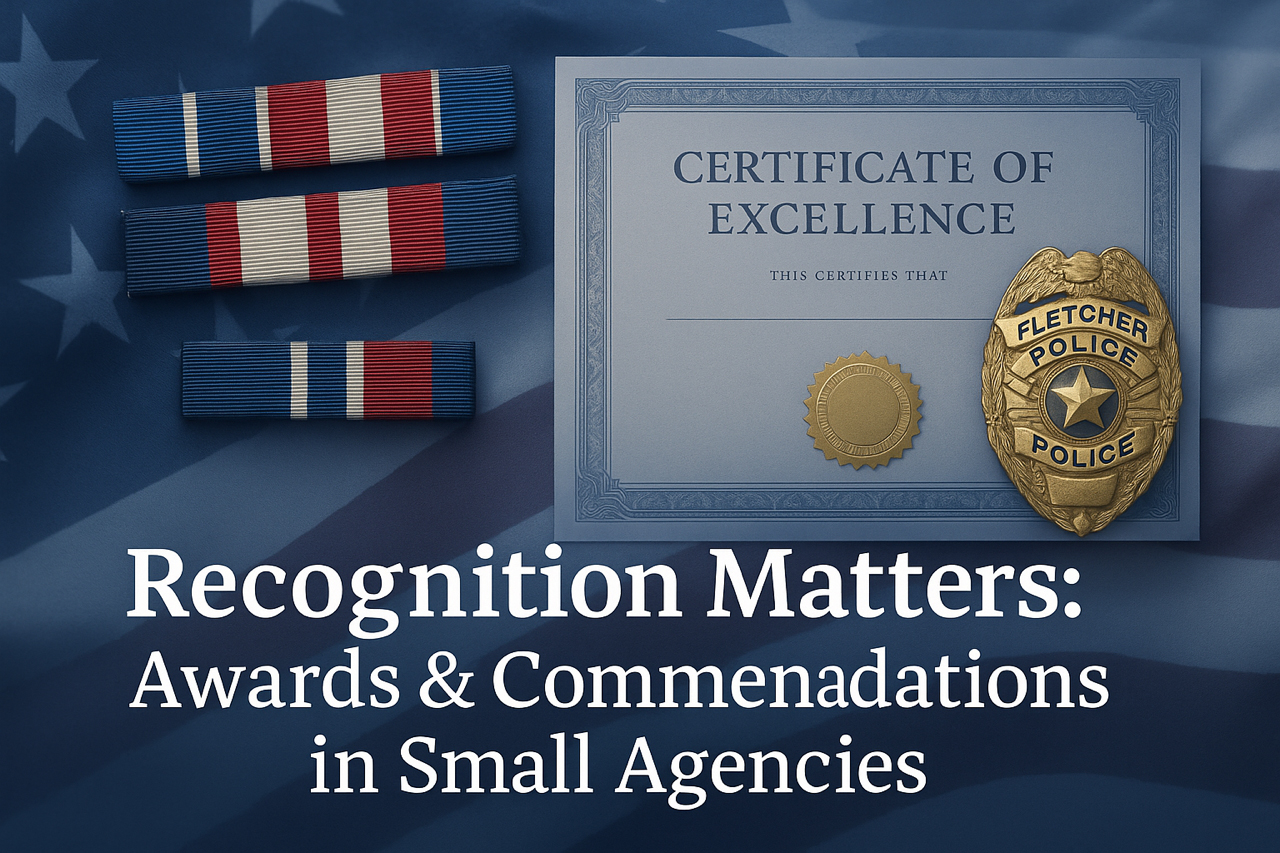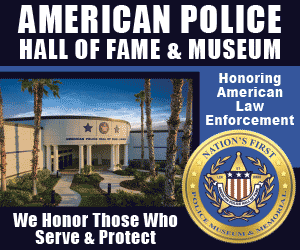In small and rural police departments…
A structured awards and commendation program isn’t just a morale booster – it’s a force multiplier for agency culture, officer retention, and community trust. And it doesn’t require a big budget – just big intention.
Why Recognition Is Essential
In a small department, every officer’s contribution matters. Formal recognition reinforces agency values, builds pride and motivation, and reduces burnout. Officers who feel appreciated are more likely to go above and beyond, seek professional development, and step into leadership roles.
Recognition also has long-term career benefits. Awards strengthen resumes, enhance promotional opportunities, and can open doors to specialized assignments or training. Commendations are more than a pat on the back – they’re investments in your people’s future.
Awards That Work in Small Departments
Recognition doesn’t need to be elaborate or expensive. A mix of the following can be highly effective:
- Medals & Ribbons: Valor, merit, lifesaving, physical fitness, or community service
- Commendation Letters: From supervisors, chiefs, or partnering agencies
- Certificates of Excellence: Formal but low-cost recognitions
- Public Recognition: Social media spotlights, town hall mentions, or local newsletters
- Wellness & Fitness Awards: Incentives for health, readiness, and resilience
These small gestures can yield big morale returns.
Leveraging External Awards Programs
Many respected organizations offer awards your agency can tap into:
- Oklahoma Association of Chiefs of Police
- Oklahoma Sheriffs’ and Peace Officers’ Association (OSPOA)
- State of Oklahoma
- National Association of Chiefs of Police
- Veterans Organizations
- American Red Cross & American Heart Association
If you’re outside of Oklahoma, I encourage you to explore similar entities in your own state – and I’m willing to bet you’ll be surprised by the number of recognition programs that already exist and how accessible many of them are. The key is simply knowing they’re out there – and then making the time to nominate deserving personnel.
Stay current on deadlines and nomination criteria. When one of your officers is recognized at the state or national level, it uplifts the entire department and signals professionalism to the community.
Research and Customize
Not sure where to start? See how other small departments structure their programs:
- What categories do they prioritize?
- How do they handle nominations and approvals?
- What incentives or recognition methods do they use?
Many agencies share templates and best practices online. Adapt what fits your needs, values, and available resources.
Cost-Effective Implementation
You don’t need a large budget to make a lasting impact. Consider:
- Commendation bars or pins that are low-cost and uniform-friendly
- Attractive certificates using basic software and quality paper
- Local partnerships for donated items (e.g., gift cards, event tickets)
- Public praise as a no-cost but high-impact motivator
These small efforts send a powerful message: we see you and your work matters.
Building a Culture of Recognition
Ultimately, an awards program is about more than plaques and pins. It’s about creating an environment where excellence is expected, noticed, and celebrated. In small departments, recognition strengthens team cohesion, encourages peer-to-peer encouragement, and builds public confidence in local law enforcement.
Conclusion
Small and rural agencies may face tight budgets and limited staffing, but recognizing excellence shouldn’t be a luxury. When done intentionally, awards and commendations become tools for strengthening culture, motivating personnel, and investing in leadership development. A well-run program helps retain talent, support officer wellness, and remind every team member that doing the right thing doesn’t go unnoticed – even if it’s done quietly, on a small-town street.




